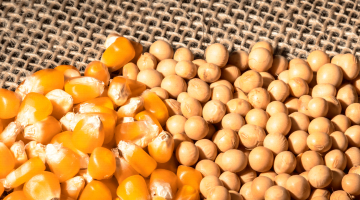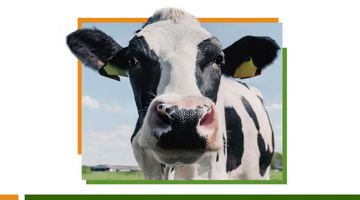Immune response of broilers challenge with aflatoxin: immunomodulation and mycotoxin effects

Mycotoxins present a substantial threat to the livestock’s health. These pernicious compounds can harm animals, impeding their growth, compromising their immune systems, and heightening their vulnerability to infectious diseases. Exposure to mycotoxins ought to be considered a possible contributing factor in presumed immunosuppression, owing to the persistent occurrence of these metabolites in feed, even at minimal concentrations.
Aflatoxins are a group of mycotoxins produced by certain species of Aspergillus fungi. These substances are highly toxic and carcinogenic, posing serious health risks to humans and animals. They have specific effects on the gastrointestinal tract and the liver, promoting a metabolic transformation into highly toxic metabolites that bind to intracellular constituents, disrupting protein synthesis, and impairing liver function (Wyatt, 1991).
In livestock, aflatoxin exposure can lead to reduced feed intake, stunted growth, and weakened immune systems (lower antibody production and vaccine response, for example). As a result, animals become more susceptible to opportunistic infections and other health problems.
A recent study from ICC Animal Nutrition has investigated the potential of ImmunoWall® (yeast cell wall – YCW) supplementation to mitigate the adverse effects of aflatoxin exposure in poultry. The Yeast Cell Wall (YCW), derived from Saccharomyces cerevisiae used in fermentation sugarcane juice for ethanol production, is a potent source of β-glucans and mannan-oligosaccharides (MOS). These compounds are recognized for their immunomodulatory properties, enhancing the immune response significantly.
The study was conducted with 152 one-day-old chicks reared in cages and examined the effects of YCW supplementation on their immune responses when challenged with 2.5 ppm of aflatoxin. The chicks were randomly assigned to four treatment groups: control (NC), aflatoxin-challenged (AFB), YCW-supplemented (YCW), aflatoxin-challenged, and YCW-supplemented (YCW+AFB).
 The results revealed that YCW supplementation significantly enhanced the innate immune responses of aflatoxin-challenged broilers. YCW-supplemented birds showed higher levels of leukocytes, indicating a more robust innate immune response. Additionally, YCW supplementation increased the number of macrophages while reducing the number of antigen-presenting cells, suggesting a balanced immune response. Furthermore, YCW supplementation activated CD8 cytotoxic lymphocytes and CD4 helper cells, further strengthening adaptive immune responses.
The results revealed that YCW supplementation significantly enhanced the innate immune responses of aflatoxin-challenged broilers. YCW-supplemented birds showed higher levels of leukocytes, indicating a more robust innate immune response. Additionally, YCW supplementation increased the number of macrophages while reducing the number of antigen-presenting cells, suggesting a balanced immune response. Furthermore, YCW supplementation activated CD8 cytotoxic lymphocytes and CD4 helper cells, further strengthening adaptive immune responses.
 The study also demonstrated that YCW supplementation could modulate the acquired immune responses of aflatoxin-challenged broilers, potentially reducing the negative impacts of aflatoxin exposure. YCW-supplemented birds showed a higher antibody concentration after vaccination, suggesting that YCW may enhance the efficacy of vaccination programs.
The study also demonstrated that YCW supplementation could modulate the acquired immune responses of aflatoxin-challenged broilers, potentially reducing the negative impacts of aflatoxin exposure. YCW-supplemented birds showed a higher antibody concentration after vaccination, suggesting that YCW may enhance the efficacy of vaccination programs.
These findings suggest that YCW supplementation could be a valuable tool for improving poultry health exposed to aflatoxin contamination. By modulating immune responses, Immunowall® supplementation can help broilers withstand the harmful effects of aflatoxin and enhance their ability to respond to vaccinations. The study’s findings indicate that Immunowall® could improve immune function, support vaccination efficacy, and potentially reduce the negative impacts of aflatoxin contamination, making it a potential game-changer for poultry health and productivity.
Posted in 23 May of 2024


